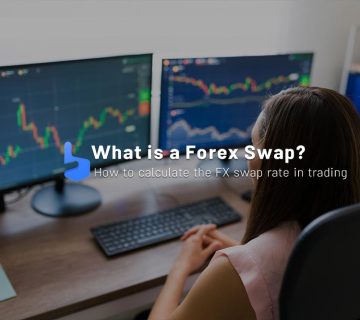What you are about to read:
The difference between equity and balance is an essential financial metric that provides insights into the account’s financial status, and this Brokerland article will delve into it.
The balance in forex represents the amount of money present in the trading account at any given time, reflecting the total funds, including profits or losses from closed and executed trades. Essentially, the balance provides a snapshot of the account’s financial status at a specific point in time without considering open positions or unrealized gains/losses.
On the other hand, equity in forex is the momentary value of the trading account, considering not only the initial balance and current balance but also the current value of open positions. It reflects the net value of the account’s assets at any given moment, including realized and unrealized profits or losses from active trades.
Equity can fluctuate with market price changes, serving as a key indicator of account health. If it’s less than the balance, it indicates that the trader has incurred a loss, and if it’s higher, it signifies profit. Continue reading this free tutorial to learn forex trading from Brokerland to fully explore and understand this topic.
The difference between equity and balance
To understand the difference between equity and balance, we need to separately define each.
Balance in Forex
Balance in forex is defined as the amount of money present in a trader’s account at any given moment in time. However, this balance does not cover any profits gained or losses incurred by the trader in open positions. This is because the balance in forex only indicates profits/losses from closed positions.
Equity in Forex
Equity refers to the total balance of a forex trading account, including profits and losses from both closed and open positions. This value is equal to the balance plus/minus profits/losses from all open positions. The formula below illustrates the concept of equity:
Equity = Balance + Last income from open positions + Swap – Broker’s commission
Now that we’ve examined these two concepts separately, understanding the the difference between equity and balance is straightforward. In essence, the difference lies in the open positions that are not considered in the balance. In contrast, all current changes in open positions are part of equity. This means that equity is a floating value that changes over time.
If a trader has no open positions, balance equals equity in forex. There are two scenarios where equity may be less than the forex balance:
- Profits from trades are unable to cover the broker’s commission or swap.
- Open positions are currently facing losses.
There is also a situation where equity can be higher than the balance in forex. In this case, profits from existing positions must exceed the forex broker‘s swap and commission.
In MetaTrader 4, the “Trade” and “Exposure” tabs display balance and equity. While understanding what balance is in forex and knowing its value in your account is essential, monitoring equity and continuous control over it are even more critical.
Why Traders Need to Know What Equity is in Forex
Let’s start by examining another definition of equity. Equity can also be defined as the total balance of a forex trader and all unrealized profits/losses related to their open positions. Equity reflects the prevailing status of all open positions.
If margin is deducted from equity, the trader reaches their free margin. They can then use this free margin to initiate new trades. However, if this balance is not sufficient to hold the existing positions, the broker will issue a margin call.
This notification informs the trader to replenish their balance. Failure to act on this notification will result in the broker forcibly closing all open positions of the trader if the market moves against them.
Notifications sent by brokers for charging accounts as margin calls and scenarios where the broker forcibly closes a trader’s open positions due to insufficient funds are known as stop-outs.
Brokers have different limitations for margin calls and stop out levels. These details are usually outlined in the specifications of a forex account and are provided in the reviews of brokers conducted by Brokerland for each broker, such as FiboGroup or USGFX, in the account specifications section. As a trader, it’s important to track your equity and free margin to ultimately safeguard your deposit.
Which is More Important: Balance or Equity?
It is clear the difference between equity and balance is meaningful. Ignoring your equity and not fully understanding what equity is in forex impacts the efficiency of trades and the potential for profit due to significant factors it encompasses.
While balance in forex includes nothing significant that affects trade results, the effectiveness of your trading strategy, risk management principles, and your money management determine your equity. That’s why you cannot trade carelessly or act randomly in your trading approach, as it only brings your account closer to the stop-out level.
When it reaches that level, your equity won’t be able to support further trading operations, and your forex balance will be reduced to zero.
Final Words
We hope to have provided a comprehensive answer to the two main questions of what balance is in forex and what equity is in forex in this article, helping you better understand the difference between equity and balance. As mentioned above, insufficient attention to these two aspects, especially equity, can result in the complete loss of your capital.
In summary, while balance in forex indicates the total funds in a forex trading account, equity provides a dynamic perspective of the account’s value, considering the current activities of ongoing trades and market fluctuations. Understanding the difference between equity and balance and monitoring them are crucial for risk management and evaluating the performance of a forex trading account.










